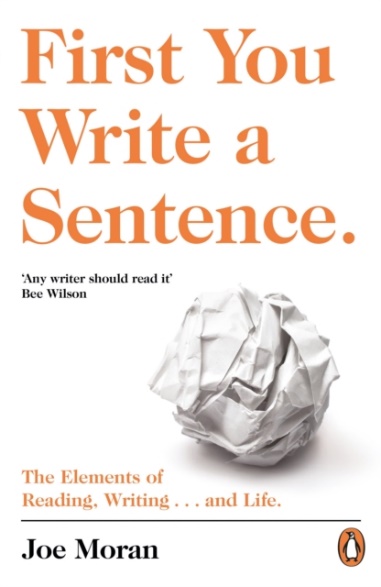
On the first page of this book, Joe Moran quotes Gustave Flaubert’s claim (in a letter to his lover, Louise Colet) that his mind is always “itching” with sentences. Flaubert is Moran’s natural literary authority, because for him literature was style, and style came down to the shape and wording of sentences. Later interpreters might read Madame Bovary as an anatomy of sexual hypocrisy or class conflict or the pains of bourgeois marriage, but what the novelist really cared about were its sentences – their rhythm, their wit, their beauty.
Moran shares Flaubert’s values. His book recommends the pleasures of the well-made sentence, to writers and readers. For both, the sentence is the essential unit of expression. Moran remembers the Struldbruggs, the cursed immortals in Jonathan Swift’s Gulliver’s Travels, who as they age lose even the solace of reading, “because their Memory will not serve to carry them from the Beginning of a Sentence to the End”. A sentence is what you hold in your head, whether it be Ernest Hemingway or Marcel Proust. A sentence is where you make sense of the world.
Moran says he wants to “hearten, embolden and galvanise the reader”, in order that he or she, as a writer, should take pains over making sentences. He does not want to call his book a style guide, a genre he associates with “prescriptions and proscriptions”. It is, rather, “a style guide by stealth”, “a love letter to the sentence”. It offers us bracing – and often sententious – sentences. “A good sentence gives order to our thoughts and takes us out of our solitudes … A sentence should feel alive, but not stupidly hyperactive.” Moran suggests good habits. He tells us to love verbs and to go easy with nouns, to “cut syllables where you can”, to think about ending a sentence on a stressed syllable, to alternate short and long sentences.
He also tells us what not to like. He eloquently laments the rise and rise of “the argot of modern managerialism”, with its “nouny sentences”. As an academic, he feelingly deplores the bad habits of academic prose, with its conjunctive adverbs (“Moreover …”, “However …”) and its twitchy meta-comment (“I will argue that …”). Yet he equally knows that less is not always best. In a brisk chapter called “Nothing Like a Windowpane”, he unpicks the doctrinaire plainness of Ernest Gowers and George Orwell. He even advocates the expressive subtlety of the subjunctive.
Moran is a thoroughly sane, thoughtful commentator. It took me a long time to find something to disagree with in his book, but about two thirds of the way through I succeeded. He is celebrating the prose of John Donne’s sermons, which seems to feel its way forward experimentally, improvising analogies and snatching at allusions as it goes. He contrasts this with the studied prose of the “high Augustan stylists” of the 18th century, writers such as Samuel Johnson and Edward Gibbon. They apparently “sliced the world into logical sequence and served it up like a cold cut”. Yet the sentences of Johnson and Gibbon are also often beautiful. You can admire Donne’s sonorous amplifications, and also relish the mournful irony of Johnson’s style, or the witty patterns of Gibbon’s elaborate periods. There are different kinds of good sentence – if the writer is good enough. He does not want to call his book a style guide, a genre he associates with 'prescriptions and proscriptions'
Moran knows this perfectly well, but he does not have to face up to the different virtues of different styles because he often avoids examples. His book is rather sparing with quotation. Pondering the nature of a paragraph, Moran reaches for the “wonderful paragraphs” of Ralph Waldo Emerson: “he amassed them in ways that made oddly compelling and persuasive shapes”. These ways will remain obscure to almost all Moran’s readers, as we do not get to see any example of an Emerson paragraph, in all its odd compellingness. The writer quoted most often is William Tyndale, the first great translator of the Bible into English. Most of what is best in the much-revered King James Bible was in fact first coined by Tyndale, and Moran relishes his beautiful pithiness. We cannot write like Tyndale, yet he memorably shows us how to combine “stateliness” with colloquial rhythms.
Without more examples, you fear that Moran’s precepts will slip from the memory; even the best of readers have Struldbrugg tendencies. Perhaps that is why he condenses his advice into 20 sentence-long precepts that he lists in a final appendix, a handy summary of all that he has argued. When he reaches the end of his book, Moran goes back to Flaubert, quoting his mother’s comment as he painstakingly worked on Madame Bovary. “Your mania for sentences … has dried up your heart.” In fact, he argues, a delight in good sentences is a kind of restorative, a way of finding pattern and purpose in the world.




